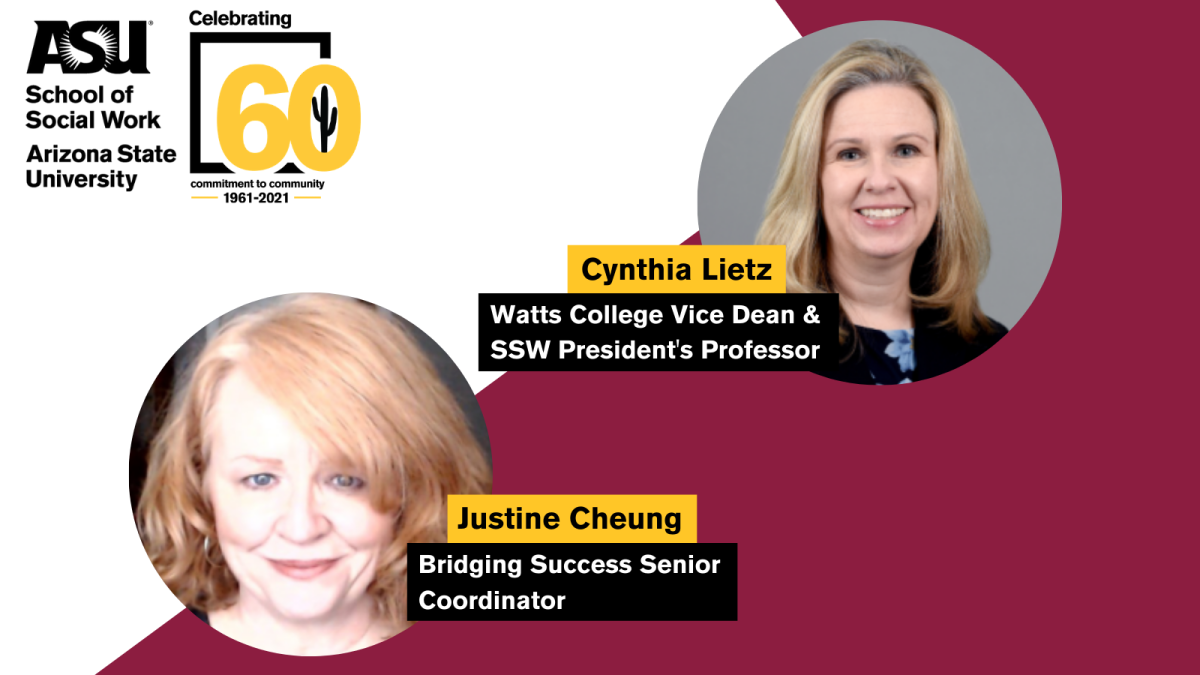Child welfare professionals, advocates learn ways to better serve foster youth

Those who work with young people in the child welfare system occasionally will look up from that work and glance at the calendar, which reminds them that one day, every one of these children must leave their care in one way or another.
Some are adopted, but many will “age out” of the foster system and be on their own at age 18, or older based on other factors such as enrollment in school.
Arizona State University recently hosted the third annual "Next Chapter Symposium: Resources to Support Aging Out Foster Youth" as a virtual event to give those who serve these young people more tools and ideas. The event was presented by First Star ASU Academy and ASU’s Bridging Success program. Bridging Success, based at Watts College for Public Service and Community Solutions, assists ASU students who are former foster youth cope with special challenges that come from their experiences.
The two entities collaborated with Voices for CASA Children, the Dependent Children’s Services Division of the Arizona Supreme Court, and the Arizona Department of Education to offer this event, as well as other continuing education webinars for court-appointed special advocates (CASAs) and other caring adults who support children and youth involved with the child welfare system.
Watts College Vice Dean Cynthia Lietz, a President’s Professor in the School of Social Work, delivered the keynote presentation, “Activating Resilience: Learning How to Recognize and Build Resilience in Yourself and Others.”
In the presentation, participants learned how they can help activate the process of resilience for young people facing adversity by strengthening even just a few of the protective factors uncovered in Lietz’s research. Things like social support, insight, flexibility and even a sense of humor can help young people overcome the negative consequences typically associated with ongoing stress.
Bridging Success senior coordinator Justine Cheung said the annual event has proven popular in the child welfare community and was well-attended, despite its being held virtually.
“Approximately 233 individuals were able to choose from 16 webinars conducted by our dedicated community partner organizations,” Cheung said.
Webinar topics at the symposium included independent living, resilience and self-care, rights and protections in behavioral health, sex trafficking and substance abuse.
First Star ASU Academy director Gabriela Jimenez said she was grateful for the chance to host the symposium.
“We had the great opportunity to host the Next Chapter Symposium for supportive adults in Arizona, expanding our mission,” Jimenez said. “For First Star ASU it is important to serve our communities beyond the scholars in the program.”
Cheung said that many of the late February event’s presenters addressed the topic of higher education and provided resources to help young people plan, apply and pay for college.
“The more supportive adults a young person in foster care has in their lives, the more likely they are to be successful in adulthood,” Cheung said.
This story’s subject matter embraces two of the five main aspirations of the Watts College of Public Service and Community Solutions: equity, through its concern with child youth and well-being and for accessibility and inclusion, and potential, through its concern with recovering and healing.
More Arts, humanities and education

ASU professor's project helps students learn complex topics
One of Arizona State University’s top professors is using her signature research project to improve how college students learn…

Award-winning playwright shares her scriptwriting process with ASU students
Actions speak louder than words. That’s why award-winning playwright Y York is workshopping her latest play, "Becoming…

Exceeding great expectations in downtown Mesa
Anyone visiting downtown Mesa over the past couple of years has a lot to rave about: The bevy of restaurants, unique local shops…

